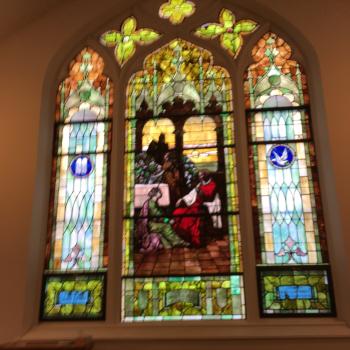Having argued for quite some time against what has become a “witch hunt” for “illegal” immigrants in this country with family, friends, and in the Catholic blogosphere, I can personally attest as to how the debate always boils down to this: illegal immigrants are breaking the law when they enter the country illegally; therefore, they should not be given any type of ‘pardon’ or ‘amnesty’ or special treatment for that matter. It is as if entering the country “illegally” automatically transforms these people into criminals. No distinction is even given to what type of law these individuals are breaking—a civil law. Even so-called “Christians” have no problem saying that “lay and clergy assert that they have moral license to break the law in order to hide illegal immigrants.” When I run a red light or drive over the speed limit and I am given a ticket, I do not automatically turn into an “illegal” driver or “illegal” citizen. The problem and controversy around the immigration debate has to do exactly with the adjective itself: “illegal” immigrants. In other countries, “undocumented” or “out-of-status” migrants are more proper qualifiers for individuals who are “in transition” within the immigration process.
Sadly, in the debate there is no question as to whether our current immigration laws are fair or whether the treatment of processed “illegal” immigrants is just or not. No question about why “illegal” immigrants do not receive medical treatment while in prison before being deported to their native countries. No question about why “illegal” immigrants die in their prisons before ever reaching their final destination. Hence, we see how the adjective “illegal” applied to the migrant subliminally gives a law primacy over a person within the immigration debate.
Here is a classic example of what I am talking about from the Acton Institute, which is what happens when people do not interpret Sacred Scriptures in line with the Magisterium and in light of Sacred Tradition:
With that said, it seems inadvisable to the church, as a societal institution, to disobey the law to protect illegal immigrants from deportation. Christ expected his followers to treat criminals in prison the way they would treat him, but he said nothing about busting them out of prison. The church has a tremendous interest, morally and practically, in preserving the rule of law. From a moral perspective, Scripture teaches that we are to submit to the governing authorities appointed by God. Churches especially ought to honor conscientious immigrants who follow the laws of the land and not undermine their difficult and virtuous choices by systematically condoning illegal behavior. And practically, American churches ought to venerate and cherish the law because it is the guarantor of their religious freedom.
There is a time and place for Christians to resist manmade laws in extreme circumstances when laws contradict the express commands of Scripture or, in the words of Thomas Aquinas, when they violate the law of charity. An example that comes readily to mind is the Holocaust, when Christians were justified in breaking the law to hide Jews from the Gestapo. A more clear-cut case of mans law versus Gods law is difficult to imagine.












